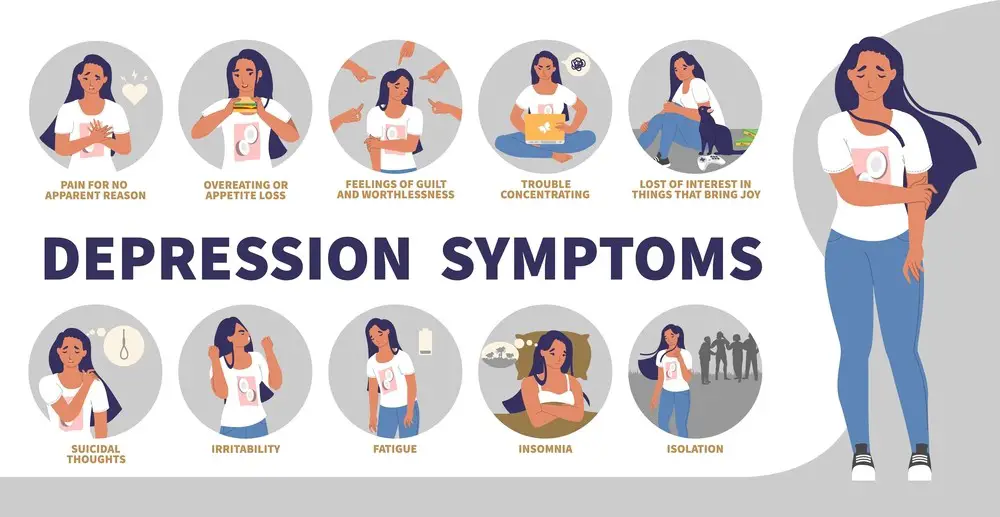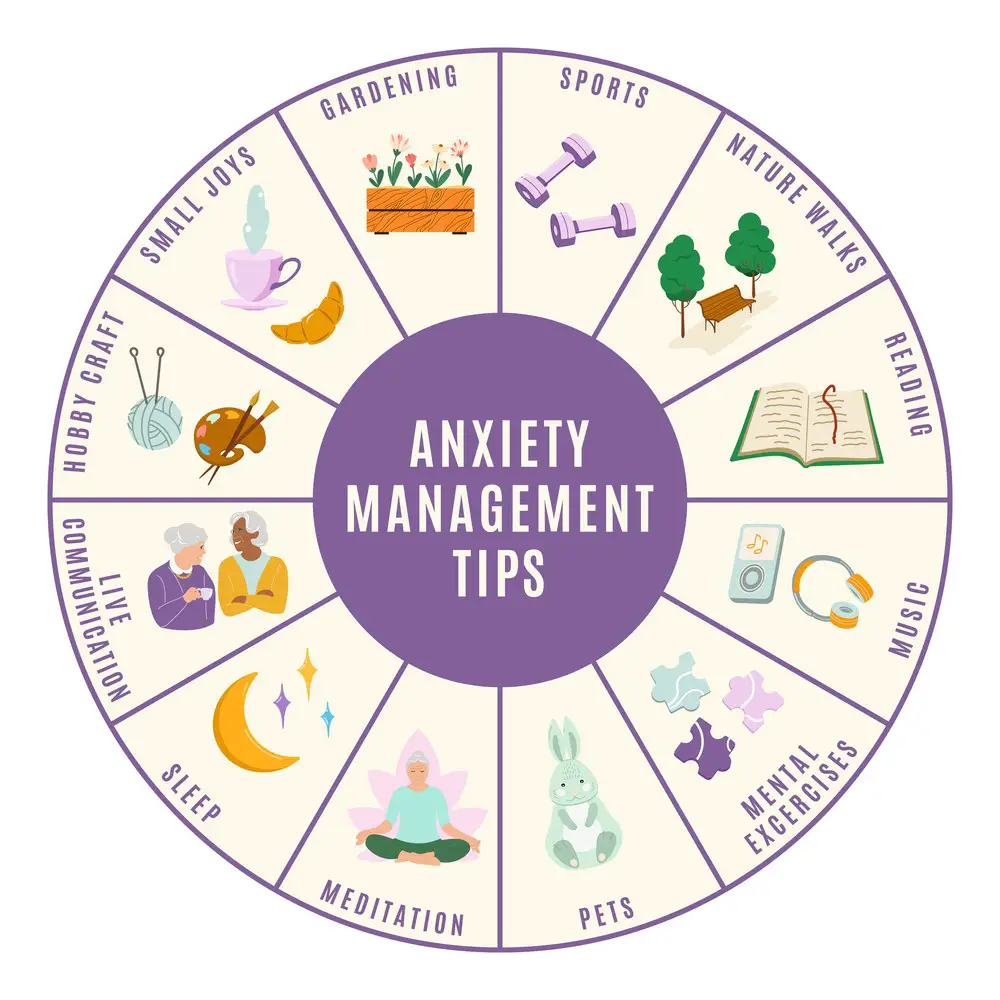Entering therapy can be an intimidating experience, especially if it’s your first time. You may be unsure of what to expect or how to answer some of your therapist’s questions, such as the common query, “What brings you to therapy?” Knowing how to approach this question can help you feel more confident and prepared as you embark on your journey toward better mental health.
When asked what brings you to therapy, it’s important to be honest and open about your reasons. Therapists appreciate when clients are forthcoming about their struggles and feelings, as it helps establish trust and rapport between you both. Remember, therapy is a supportive, non-judgmental space designed to help you work through various life challenges, whether emotional, relational, or circumstantial.
Key Takeaways
- Be honest and open about your reasons for seeking therapy
- Establish trust and rapport with your therapist by being forthcoming
- Therapy is designed to help you navigate various challenges in your life
 Preparing for First Session
Preparing for First Session
Identifying Goals
Before your first therapy session, take some time to identify your goals for treatment. Consider what aspects of your life or emotions you’d like to improve and what specific changes you hope to achieve. Be honest with yourself and think about both short-term and long-term objectives. Jot down these goals, as discussing them with your therapist will help set a direction for future sessions.
Formulating Questions
In addition to determining your goals, it’s crucial to formulate questions that you’d like to ask your therapist during the first session. Some topics might include:
- The therapist’s approach and philosophy toward therapy
- How the therapist would address working on your specific goals
- Any doubts or concerns you may have about the therapeutic process
Preparing these questions will help you feel more at ease and make the first session more productive.
Establishing Rapport
Establishing rapport with your therapist is essential for productive therapy sessions. During the first session, take the opportunity to get to know your therapist personally. Share your interests, passions, and any unique aspects of your life that might help your therapist connect with you. Don’t be afraid to ask the therapist about themselves as well. Establishing a mutually comfortable environment is crucial for building a strong therapeutic alliance.
Remember, being open and attentive to your feelings during the first session can set the stage for successful subsequent sessions. By identifying your goals, formulating questions, and establishing rapport with your therapist, you’ll be well-prepared for a promising start to your journey in therapy.
 Therapy Treatments and Approaches
Therapy Treatments and Approaches
Understanding Various Treatments
There are multiple treatment options available for different mental health issues. As you explore therapy, it’s important to understand which treatments may be most effective for your specific situation. Some common forms of treatment include individual therapy, group therapy, family therapy, and cognitive-behavioral therapy. Each approach has unique benefits; the right choice will depend on your needs and goals. Discuss your options with a qualified professional to make the most informed decision.
Coping Mechanisms and Strategies
In therapy, you’ll learn various coping mechanisms and strategies to help you manage your emotions and deal with challenges effectively. These can include relaxation techniques, visualization exercises, and mindfulness practices. By implementing these coping strategies, you can improve your emotional well-being and develop better responses to stressors and triggers. Remember to practice these coping mechanisms consistently to make them more effective, and don’t be afraid to change or adapt your coping strategies as necessary.
Importance of Therapeutic Alliance
Developing a strong therapeutic alliance with your therapist is essential for successful therapy. This alliance refers to the trusting and supportive relationship between you and your therapist, which is the foundation for personal growth and healing. A good therapeutic alliance can help facilitate open communication, allowing you to express your thoughts and feelings more freely. Additionally, a strong alliance encourages mutual understanding and cooperation, which can help improve the effectiveness of your therapy sessions.
As you begin your therapy journey, remember to be open to different treatment approaches, use coping mechanisms and strategies, and strive to develop a positive therapeutic alliance. With these elements in mind, you’re on your way to a successful and fulfilling therapy experience that meets your unique needs and goals.
 Navigating Emotional Challenges
Navigating Emotional Challenges
Dealing with Stress and Anxiety
You might feel overwhelmed by stress and anxiety in your daily life, which can be tiring and negatively impact your mental health. Therapy can provide you with effective techniques to manage these feelings. You’ll have the opportunity to discuss your sources of stress, and your therapist will help you develop personalized coping strategies. They might introduce you to relaxation techniques and new ways of thinking or even suggest practical solutions for alleviating some of your stress. Remember, each person’s experience is unique, so your approach to managing your stress and anxiety should be tailored to your needs.
Understanding and Processing Emotions
Sometimes, it’s difficult to pinpoint the exact emotions you’re feeling, which can result in confusion and emotional imbalance. Therapy is an excellent place to learn how to understand and process your emotions. Your therapist will guide you through self-reflection to identify the root causes of your emotional discomfort. You may engage in conversations, writing exercises, or even art therapy to express and gain a better understanding of your emotions. As you work on understanding your emotions, you’ll be better equipped to handle them healthier and avoid bottlenecks that may lead to other emotional or mental health issues.

Overcoming Depression and Trauma
Depression and trauma are severe emotional challenges that many people face, and they can significantly affect your quality of life. Therapy can help you overcome these hurdles by offering support and guidance. Your therapist will work with you to explore the origins of your depression or trauma. They may focus on identifying triggers, helping you develop coping mechanisms, or fostering better self-care habits in your daily routine.
You may also delve into your past experiences to understand the impact of your depression or trauma on your present life. This process can assist you in healing and moving forward. You’ll learn healthier ways to manage these challenges and gain insights that empower you to create lasting improvements in your mental well-being.
Enhancing Communication and Relationships
Improving Communication Skills
One of the main reasons you may seek therapy is to improve your communication skills. A clinical psychologist can help you identify gaps in your communication style, enabling you to express your thoughts and emotions more effectively. Learning techniques such as active listening, assertive expression, and managing nonverbal cues, you will be better equipped to navigate personal and professional relationships.
In therapy, you will work on identifying and overcoming common communication barriers like selective attention and emotional reactions. This could involve role-playing, practicing empathetic responses, and rephrasing statements to avoid sounding accusatory or dismissive.
 Building Healthy Relationships
Building Healthy Relationships
Another important aspect of therapy is learning how to build healthy relationships. A strong therapeutic relationship offers a safe space to explore your interpersonal dynamics and address any relationship issues or patterns you may struggle with. This can include setting boundaries, establishing trust, and developing clear expectations in your relationships.
A clinical psychologist can guide you through exercises fostering mutual respect, appreciation, and understanding, creating a solid foundation of relationships. By identifying unhealthy or toxic patterns, you can work on replacing them with behaviors that contribute to long-lasting and fulfilling connections.
In conclusion, enhancing communication and relationships through therapy can significantly improve your overall well-being and give you the tools to navigate complex dynamics in various aspects of your life.
Dealing with Life Changes
Coping with Job Loss and Illness
Life changes can be challenging, especially when they involve a job loss or illness. Giving yourself time to process your emotions and adapt to new circumstances is essential. First, acknowledge your feelings and allow yourself to experience them fully. This can help you better understand your emotional state and develop a strategy for coping.
Another important aspect of coping with job loss and illness is establishing a daily routine. Maintaining a sense of structure can provide comfort and control, even when everything else seems uncertain. Incorporate essential elements like exercise, relaxation, and maintaining social connections.
 Finding Support and Well-Being
Finding Support and Well-Being
Seeking support from friends, family, or professionals is crucial in navigating life changes. Share your experiences and emotions with people you trust. Remember that it’s okay to lean on others during challenging times. They can offer valuable advice, encouragement, and comfort.
Pursuing well-being is an essential aspect of coping with difficult times. Focus on nurturing your body, mind, and spirit:
- Body: Prioritize self-care by eating healthily, exercising regularly, and getting enough sleep.
- Mind: Engage in activities that promote mental health, such as practicing mindfulness, journaling, or engaging in hobbies that bring joy.
- Spirit: Strengthen your emotional and spiritual bonds through meditation, yoga, or connecting with a higher power if you believe in one.
Remember, seeking therapy to address your challenges and feelings associated with life changes can be invaluable. A professional therapist will provide guidance and support tailored to your specific needs. Embrace the journey toward healing and self-discovery.
Unpacking Success: How to Recognize When Therapy is Working and When to Begin or Continue
Therapy is an ongoing process; recognizing the signs of progress or the need for continued support can be a vital part of your mental health journey. Here are some essential tips to help you navigate this path:
1. Recognizing Positive Change:
- Increased Self-Awareness: You notice greater insight into your emotions, thoughts, and behaviors.
- Improved Relationships: Relationships with friends and family are becoming more harmonious and fulfilling.
- Reduction in Symptoms: Symptoms such as anxiety or depression lessen, and daily life becomes more manageable.
2. Knowing When to Continue Therapy:
- Unresolved Issues: If underlying issues still need to be addressed, continuing therapy can provide the support needed.
- Challenging Life Transitions: Facing major life changes can signify that continued therapy can be beneficial.
3. Signs You May Need to Start Therapy:
- Overwhelming Emotions: Therapy may be helpful if you struggle with unmanageable emotions.
- Persistent Feelings of Sadness or Anxiety: When these feelings persist and affect daily life, it’s a sign to consider professional help.
- Significant Life Changes: Big, positive changes can trigger stress. Therapy can provide support and strategies to cope.
The success of therapy is often marked by personal growth, increased resilience, and improved well-being. Don’t hesitate to seek professional guidance if you struggle, and be patient with yourself as therapy’s effects may unfold gradually. Connecting with a mental health professional can be an empowering step towards a happier and healthier you.

Questions to ask yourself:
Before attending therapy, take some time to reflect on why you decided to seek professional help. Understanding your motivations can make it easier to communicate them to your therapist. Here are some self-reflection prompts that might be helpful:
Why did you decide to seek therapy now?
Sometimes, a specific event or ongoing stressor can prompt someone to seek therapy. Reflect on what you are experiencing now and whether any significant changes or stressors might have led you to seek therapy. Considering your reasons for being in therapy will help you and your therapist steer the sessions in the right direction.
What are your expectations from therapy?
Your expectations from therapy can play a vital role in your progress. Take some time to outline your hopes regarding the therapeutic process. Sharing your expectations with your therapist can facilitate an open and productive dialogue, ensuring your sessions are tailored to your needs.
Can you describe your therapy goals?
Establishing therapy goals can help you measure your progress and focus on your objectives. Identifying short-term and long-term goals allows you and your therapist to work collaboratively and adjust the process as needed. Spend time before your sessions considering what you want to accomplish during therapy.
How do you see therapy helping you?
Visualizing the positive effects of therapy can help make your sessions more effective. Spend time contemplating how you envision therapy helping you, whether that’s improved relationships, reduced stress, personal growth, or finding solutions to specific issues. Share your ideas with your therapist to guide the process.
What problems do you hope to address in therapy?
To get the most out of therapy, it’s important to identify the specific problems you’re seeking to address. This can include personal challenges, stress, relationships, career, mental health, or other situations that impact your life. Sharing these issues with your therapist can enable them to use their expertise to help you work through them.
What’s your history with therapy or counseling?
Your background in therapy or counseling can provide essential context for your current sessions. Discuss any previous experiences with your therapist, including what worked well and what didn’t. This will help the therapist develop a treatment plan that considers your history and is tailored to your needs.
 Unleashing the Power of Healing: Maximizing Your Therapy Experience
Unleashing the Power of Healing: Maximizing Your Therapy Experience
Therapy is a journey toward self-discovery and healing, but your engagement and approach can influence effectiveness. Here are some tips to help you get the most out of your therapy sessions:
- Be Open and Honest: Your therapist is there to help, not to judge. Share your feelings, thoughts, and fears openly. Honesty fosters a deeper connection and facilitates genuine healing.
- Set Clear Goals: Understand what you want to achieve from therapy. Whether managing stress, overcoming a specific fear, or improving relationships, having clear goals helps guide the process.
- Embrace the Process: Therapy is not a quick fix; it’s a process that takes time and effort. Be patient with yourself and embrace the journey, recognizing that growth often comes gradually.
- Do the Homework: Therapists often assign tasks or exercises to do outside of the session. Engage with these, as they’re designed to reinforce what you’re learning and help you apply it to your daily life.
- Communicate with Your Therapist: Let your therapist know if something isn’t working or you’re uncomfortable with an approach. Open communication ensures that the therapy is tailored to your needs.
- Commit to Regular Attendance: Consistency is key. Regular sessions build momentum and allow you to dive deeper into the issues you’re addressing.
- Reflect Between Sessions: Review what you’ve discussed in therapy and how it applies to your life. Reflection fosters internal growth and helps you connect the dots.
- Practice Self-Care: Therapy can be emotionally draining. Nurture yourself outside the sessions with activities that make you feel good and support your overall well-being.
- Embrace Vulnerability: Allow yourself to be vulnerable. It’s within this space that true healing and growth occur.
- Celebrate Progress: Even small steps forward are worth celebrating. Acknowledge and reward yourself for the progress you make.
By implementing these strategies, you’re not just attending therapy; you’re actively participating in a transformative process that can lead to profound personal growth and healing.
Navigating Digital Healing: Embracing Online Therapy in the Modern World
In an era where technology permeates nearly every aspect of our lives, online therapy has become a convenient and effective means of accessing mental health support. As with traditional face-to-face therapy, online therapy offers a range of benefits and can be an appropriate choice in various situations. Here’s an exploration of online therapy, including when it might be the right fit:
The Advantages of Online Therapy
- Accessibility: No matter where you live, you can connect with licensed therapists who specialize in your issues.
- Convenience: Schedule sessions at times that suit you and attend from the comfort of your home.
- Anonymity: For those who prefer a higher level of privacy, online therapy offers an anonymous setting.
- Affordability: Often, online therapy can be more budget-friendly than traditional therapy.
- Continuity: If you travel or move, you can continue seeing the same therapist without interruption.
When Online Therapy Might Be Appropriate
- Mild to Moderate Mental Health Concerns: For those dealing with anxiety, depression, relationship issues, or stress, online therapy can be an effective option.
- Geographical Limitations: If you live in a rural area or have difficulty traveling, online therapy brings professional help to your doorstep.
- Comfort Zone: Some individuals feel more at ease opening up from the familiarity of their home environment.
- During a Crisis or Pandemic: In situations where in-person meetings are restricted or risky, online therapy provides a viable alternative.
- As a Supplement to Traditional Therapy: Online therapy can also be used with face-to-face therapy to maintain progress between in-person sessions.
Considerations for Online Therapy
- Choose a Reputable Platform: Look for platforms that offer licensed therapists with verifiable credentials.
- Assess Your Needs: For more severe or complex mental health challenges, in-person therapy may be more appropriate. Always consult with a mental health professional to determine the best approach.
- Ensure Privacy and Security: Understand the platform’s privacy policy and ensure your sessions are conducted over a secure connection.
In embracing the digital healing journey, online therapy presents a modern solution tailored to the contemporary world. It’s an empowering way to take control of your mental health, offering flexibility and professional guidance without the geographical or physical barriers often associated with traditional therapy.
Journey Through the Maze: The Personal Battles and Triumphs of Jacob Maslow
I’m Jacob Maslow, a veteran in the therapy room, navigating the ups and downs of mental health with a daily dose of Lexapro and wisdom gained through personal experience. The journey has been anything but smooth. My ex-partner’s severe narcissistic behavior has led to an ongoing, painful court battle for shared custody of our two minor children, a battle marred by consistent refusals to comply with court orders.
The heartache of alienation and severed relationships with my children, whom I was once incredibly close to, led me to take long walks daily to clear my head. These walks are a meditation, a reflection on a battle where I’ve faced legal challenges and emotional turbulence.
These personal experiences fuel my passion for writing about mental health and narcissism. I aim to help others grappling with similar issues—whether dealing with a narcissistic partner or wrestling with mental health challenges. I firmly believe that anyone can conquer their mental health issues.
My legal site extends this mission, focusing on helping those dealing with spouses who weaponize children rather than co-parent, refusing to comply with court orders.
The challenges are ongoing, but so is the fight, the growth, and the healing. My story is a testament to resilience, the power of self-care, and the unending quest for justice and understanding.
- The Burnout Epidemic: Why We’re All Feeling Overwhelmed and How to Cope - February 9, 2024
- How to Live a Peaceful Life - February 9, 2024
- Useful Information You Should Know About Health Screenings - February 8, 2024
This site contains affiliate links to products. We will receive a commission for purchases made through these links.


 Preparing for First Session
Preparing for First Session Therapy Treatments and Approaches
Therapy Treatments and Approaches Navigating Emotional Challenges
Navigating Emotional Challenges Building Healthy Relationships
Building Healthy Relationships Finding Support and Well-Being
Finding Support and Well-Being Unleashing the Power of Healing: Maximizing Your Therapy Experience
Unleashing the Power of Healing: Maximizing Your Therapy Experience
